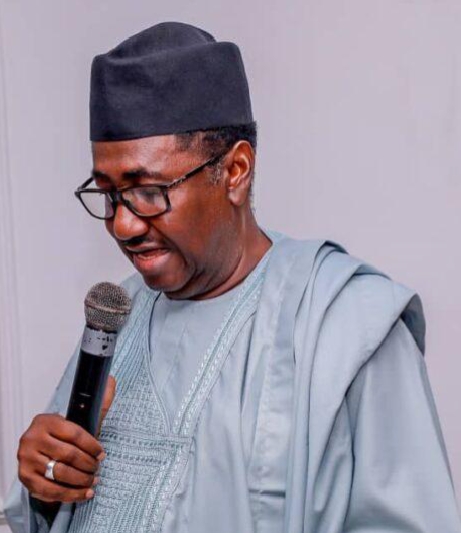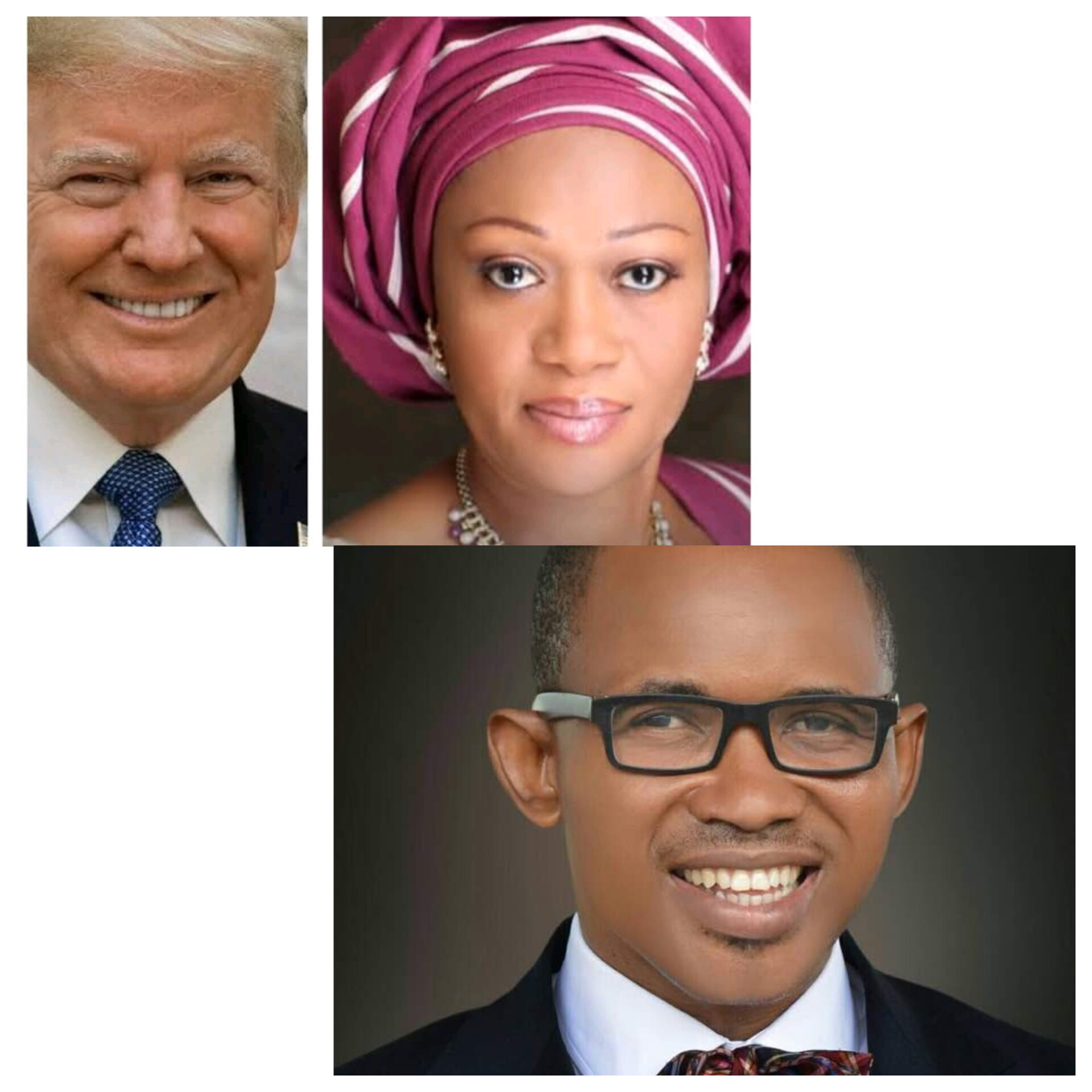HOW BILLIONS MEANT FOR SECURITY, EDUCATION, AND HEALTH BECAME PRIVATE WEALTH. By Eugene Nanven
HOW BILLIONS MEANT FOR SECURITY, EDUCATION, AND HEALTH BECAME PRIVATE WEALTH
I have been monitoring the events of this country closely for some years now, and I am now certain, that Nigeria was never broke. Nigeria was robbed. While our treasury should have built a military capable of defending the nation, global-class universities, and cutting-edge hospitals, instead it birthed a kleptocracy that siphoned off enough to lift the country into the top ten wealthiest nations—yet left us crumbling, fearful, and withering under thieves posing as public servants. Put aside all the things people are saying about our colonial masters. They left Nigeria with enough mineral and natural resources it needs to reach any height. Lets take a closer look at the 20% out of the 100% scenarios that will prove my point:
More than 400 billion dollars—roughly ₦160 trillion (which I believe is too little compared to the truth)—has been stolen since Independence. In just the last two decades, 55 individuals alone looted over ₦1.4 trillion ($3.4 billion). Add fuel subsidy scandals—over ₦4.5 trillion wasted between 2006 and 2012—and undeclared NNPC revenues of ₦8.1 trillion between 2010–2015. These are not small leaks—they are ruptures in the national foundation.
Record after record shows 58 ex-governors looted ₦2.187 trillion. Yet only four have faced conviction. Thirty heads of state and military juntas, including Sani Abacha, stole between $1–5 billion—Abacha alone confiscated over $500 million in Swiss and Jersey accounts. Billions more remain hidden in over 29 bank accounts—estimated at ₦70 trillion—the equivalent of three years of Nigeria’s national budget.
Even this staggering theft pales compared to the $15 billion (over ₦6 trillion) stolen via phantom arms deals in the Dasuki scandal alone. Officially labeled a $2.1 billion theft, investigations unearthed deeper conspiracies involving generals, ministers, and shell companies—a plot where phantom contracts and ghost deliveries funded PDP primaries, election campaigns, or luxurious lifestyles.
In 2024, EFCC recovered ₦1 trillion in seized assets—some 975 properties, crypto wallets, treasury bills, yet compared to the total stolen, it’s a drop in a decaying ocean. Another $52 million—the tip of the iceberg—was returned from Diezani Alison-Madueke, accused of diverting up to $20 billion while NNPC drained by $28 billion. And still, public schools remain dilapidated, hospitals understaffed, military outgunned, and highways second to mud tracks.
Our military, starved of equipment, operates with rusting outposts, unpaid allowances, and crumbling morale. Boko Haram roams with impunity not because they’re powerful—but because Nigeria’s defence budget was quietly transferred into private yachts, mansions in Dubai, London, and Lagos high-rises. Helicopters were never delivered. Guns were never supplied. Soldiers died. While generals and politicians lined their pockets with the wallets of the nation.
Meanwhile, teachers are broke, graduates are jobless, clinics lack basic drugs, and whole communities starve. Civil servants have had ₦32 billion deducted in pension contributions stolen from 2008–2018—former employees died before ever seeing a kobo returned. Courts and police are the most bribery-laden institutions; Nigerians paid ₦721 billion ($1.26 billion) in bribes during 2023 alone. Even judges are for sale to the highest bidder.
This country had the potential to be Africa’s Switzerland: secure borders, educated citizens, thriving workforce, and flourishing economy. Instead, we have a warlord economy, controlled by offshore accounts, phantom companies, and secret alliances. Schools produce certificate mills. Universities churn out unemployable graduates. Hospitals kill in the name of health. And the people? They suffer through inflation, hike in fuel, collapse in power, and impossible survival.
The tragedy is that countries like Japan, United States of America, and even Burkina Faso chose citizens over kleptocrats. Their leaders built roads, schools, and hospitals—not temples to greed. They invested in technology, agriculture, healthcare. Nigeria invested in shells, sanctions, bribes, and birth certificates for yachts.
The judiciary protects, and keep on prolonging court cases for years, some cases have been in the court for more than 20 years, and even more, as far as the person being humiliated is not rich or influential enough. And even so, people commit offences at ease as far as they have the money to delay the case in court till they die.
Now, consider this: in countries like the United States, the system delivers in stark contrast. Here, universities offer scholarships that changes lives. Citizens enjoy social mobility, access to healthcare once unemployment strikes, reliable infrastructure, and freedom to speak truth to power without fearing disappearance. Tie-in questions like student loan forgiveness or healthcare reform become public debate—not pretexts for state repression.
But in Nigeria, speak these truths, and you risk vanishing. Witnesses who catalog fraud, dared to file petitions, or refused bribes have been detained without trial, humiliated by staged smear campaigns, even kidnapped from highways. Some were found dead hours later, with their investigations abruptly closed. Others disappeared into custody or were quietly released—only to slink into silence, never to return to activism or public life. Their families remain in fear; their stories erased.
These are facts, not fear. Speak of corruption and you are labeled a traitor. Fight for accountability and your phone is tapped. Produce documents and your name is flagged at the border. Report arms fraud, and your car finds itself shot at. Demand transparency, and you are slandered, jailed, or quietly “disappeared.”
There is no transparency in the government, the president don’t give any room for media questions and press conferences, and even if they do, it will be “prearranged” including the questions to be asked. I remember seeing the current president of the united state Donald J trump, giving three to four press conferences in two weeks, how then can he not be seen as a “transparent” leader?. In America and elsewhere, citizens challenge injustice, launch investigations, even use the courts—and stay alive. Here, we chase them with guns.
Nigeria may have been looted, but it has never lost its people. The potential to rebuild is still our inheritance. The question is whether we will force open every phantom account, expose every ghost contract, demand every withheld naira—and do it in numbers too large to ignore.
Because stay silent too long, and your silence becomes consent—and then complicity. And then the final question: if a people refuse to claim their own wealth, can they ever truly reclaim their country?
The answer rests in you. Many people are too afraid to talk about this subject matter and I think that the past examples of those who have tried and got annihilated contributed to it. It’s now becoming dictatorship, and no longer democracy, and when the final democracy collapse finally comes, then North Korea will be by far better than us. And guest what? That day, is not far from today.
This is part of my ongoing effort in making the world a better place for all.
Eugene Nanven, a young researcher and Public affairs analyst, writes from Abuja FCT Nigeria. June 24, 2025





